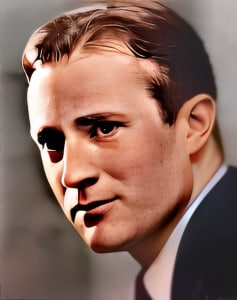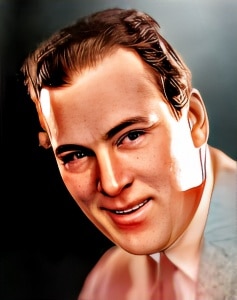 Rexford Raymond “Rex” Cherryman, born on October 30, 1896, and passing away on August 10, 1928, was a talented American actor known for his contributions to both the stage and the screen.
Rexford Raymond “Rex” Cherryman, born on October 30, 1896, and passing away on August 10, 1928, was a talented American actor known for his contributions to both the stage and the screen.
His career, though tragically short-lived, was most prolific during the 1920s, a decade that marked a transformative period in the history of entertainment and cinema.
Cherryman’s journey into the world of entertainment began in the theatrical realm, where he honed his acting skills on the stage. His performances on the stage garnered recognition and provided him with a strong foundation for his future work in the burgeoning film industry.
In the early 1920s, Rex Cherryman transitioned to the world of silent films, where he showcased his versatility as an actor. His on-screen presence and performances were notable for their depth and authenticity. Cherryman’s work on the silver screen contributed to his reputation as a charismatic and talented actor.
Cherryman’s notable film roles included appearances in “The Sunshine Trail” (1923), where he portrayed the character Willis Duckworth, and “ Camille” (1921), in which he played the role of Gaston Rieux. In the 1920 film “Madame Peacock,” he took on the character of Thorne. These films demonstrated his ability to bring characters to life and convey a range of emotions.
Tragically, Rex Cherryman’s promising career came to an untimely end on August 10, 1928. His passing marked a significant loss for the world of entertainment, particularly for the silent film industry and the audiences who had come to admire his work.
Despite the brevity of his career, Rex Cherryman’s contributions to the world of entertainment, both on the stage and the screen, continue to be celebrated and appreciated. His performances in films served as a testament to his ability to convey complex emotions and relatable experiences through the medium of silent cinema.
The 1920s marked a transformative period in the world of entertainment, and Cherryman’s work reflected the evolution of the film industry. His contributions, though tragically curtailed, remain a vital part of the legacy of early American cinema. Cherryman’s life and career represent a chapter in the history of silent cinema, a time when the medium was evolving and finding its voice. His performances are a reminder of the enduring power of film to captivate and transport audiences, even in its earliest and most experimental forms.

 Rexford Raymond “Rex” Cherryman, born on October 30, 1896, and passing away on August 10, 1928, was a talented American actor known for his contributions to both the stage and the screen.
Rexford Raymond “Rex” Cherryman, born on October 30, 1896, and passing away on August 10, 1928, was a talented American actor known for his contributions to both the stage and the screen.


